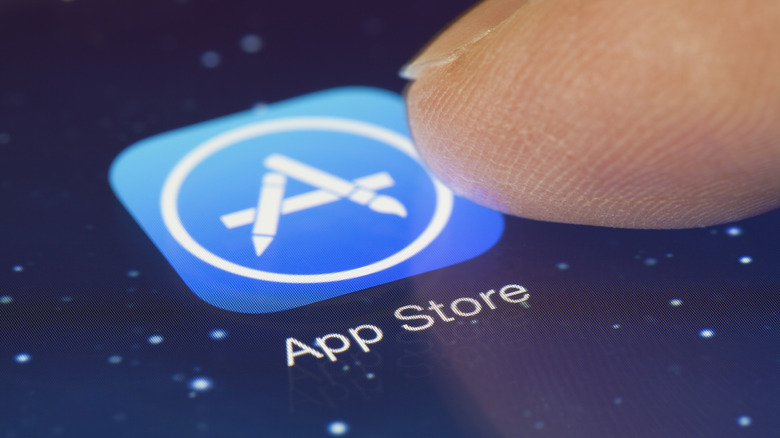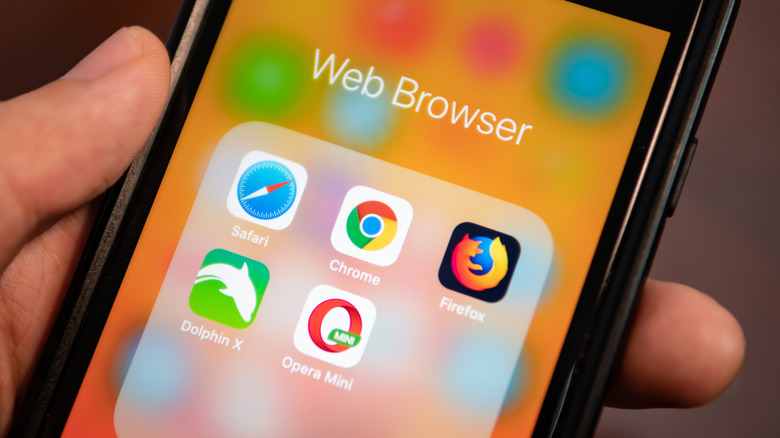This Major Apple Update Could Revolutionize What You Can Do With Your iPhone
Today, Apple has announced a set of sweeping changes covering the App Store policies for the EU market, changes that were once deemed impossible. The tweaks are not voluntary, as Apple is simply aligning its policies with the landmark Digital Markets Act (DMA) of the bloc. At the top is the ability to sideload apps, which means users will be able to download apps from other web stores instead of being locked to the App Store.
Apple is not too thrilled about the decision and notes that despite putting in new safeguards, "many risks remain." The policy change will be implemented with iOS 17.4, which will be rolled out in the coming for iPhones registered in the EU bloc. Users will be able to download app repositories, just the way they access the App Store, and install apps listed there on their iPhones. However, it won't be a free lunch. Apple says it has an approval process in place for such marketplaces before they appear on an iPhone, and apps will still be scanned for malware.
There are a whole bunch of new rules for app developers, especially a new system for paying platform fees to Apple. Still, for an average iPhone user, there's more to Apple's change of heart than just being able to install apps from alternative marketplaces. Apple will also let users set a third-party store as the default outlet for getting their applications.
Web browsing and contactless payments
Apple is also making a policy that could redefine how you browse the web on an iPhone. So far, Apple has forced the likes of Google, Mozilla, and Microsoft to use WebKit, the rendering engine that powers Apple's Safari browser on iOS. That's not the case on desktop, as Chrome and Edge rely on Chromium, while Firefox goes with Gecko. In a nutshell, web browsers on iOS are nothing but a different design but the same WebKit wrapper with the core Safari experience inside. Apple not only mandates WebKit for mobile browsers but also tightly controls what features can be added. As a result, developers can't improve their mobile browsers and offer experiences on iOS that they are otherwise free to offer on Android.
Google and Mozilla have been experimenting with experimental versions of iOS browsers based on their own engines but have yet to release them due to the existing App Store policies. But Apple says these browsers without WebKit foundations will still be subject to stringent security protocols, must pass performance tests such as Test262 with at least 80% or higher score, and commit to resolving bugs in time. In exchange for the freedom, they will have to forsake "the default browser entitlement."
Apple is also finally opening the NFC system to other banking and payment apps after keeping it locked to Apple Pay for years. Contactless payments will also be an option for third-party app marketplaces, as well.
Game streaming apps land on the iPhone
Apple and Epic Games spent a healthy few million in a heated legal war, with some sporadic appearances from Microsoft, too. The bone of contention here was game streaming apps. Take, for example, Microsoft's Xbox-branded cloud gaming service. For a fixed monthly fee, you get access to a catalog of over a hundred games that you can play for free. Think of it as Netflix but for games. Apple has resisted allowing such apps on the App Store, primarily owing to a payment dispute, and asked each game to be submitted as a standalone app. Thanks to the EU, Apple will finally allow services like Xbox Cloud Streaming and GeForce Now to appear on the App Store.
"Developers can now submit a single app with the capability to stream all of the games offered in their catalog," says the company. Most importantly, this shift in approach towards cloud-based game streaming is not restricted to the EU. Instead, it will apply to developers and iPhone users across the globe. Moreover, instead of using their own in-house or social media-based log-ins, users will now see the Apple ID sign-in system for apps, assuming the developer enables it in the first place. However, these apps will still have to adhere to rules around content safety and age ratings. Apple has already rolled out these changes with the first iOS 17.4 beta, and it will soon be available publicly for iPhone users in the EU.


